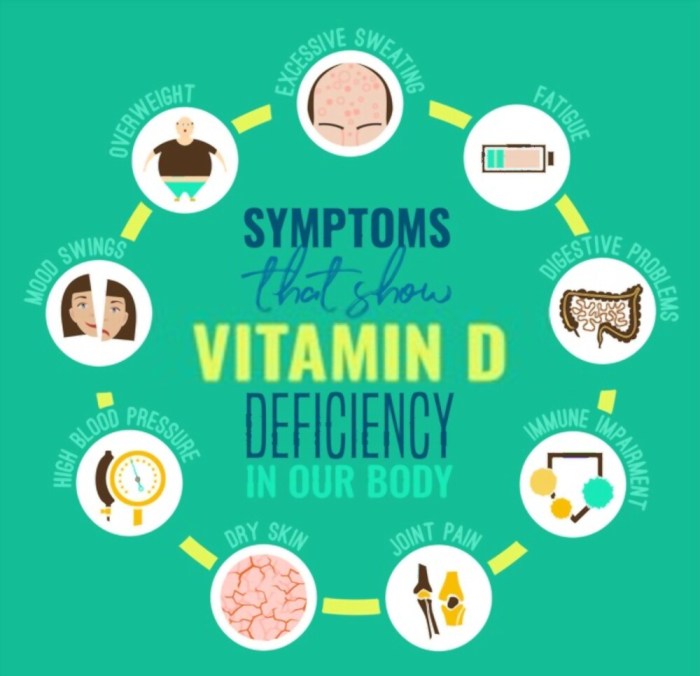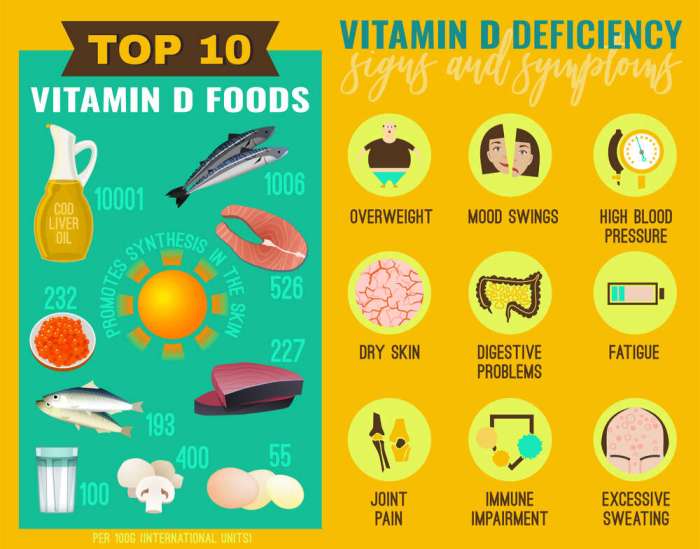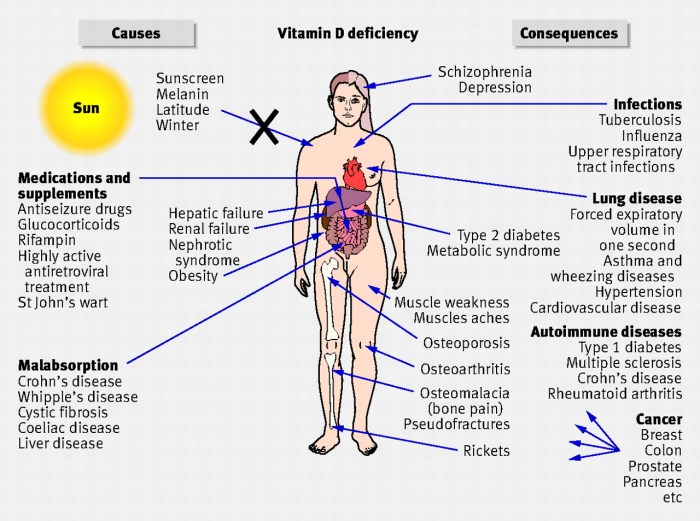Vitamin d deficiency crossword clue opens the door to a fascinating exploration of a widespread health concern. This condition, characterized by inadequate levels of vitamin D, can manifest in various symptoms and impact overall well-being. Understanding the causes, risk factors, and treatment options for vitamin D deficiency is crucial for crossword puzzle enthusiasts and health-conscious individuals alike.
Vitamin D deficiency has been linked to a myriad of health issues, highlighting its significance in maintaining optimal physical and mental health. This article delves into the complexities of vitamin D deficiency, providing valuable insights into its diagnosis, prevention, and management.
By shedding light on this condition, we empower individuals to make informed decisions about their health and well-being.
Vitamin D Deficiency: Vitamin D Deficiency Crossword Clue

Vitamin D deficiency is a condition that occurs when the body does not have enough vitamin D. Vitamin D is a nutrient that is essential for maintaining bone health, as it helps the body absorb calcium. Vitamin D deficiency can lead to a number of health problems, including bone pain, muscle weakness, and fatigue.
Causes and Risk Factors
The primary causes of vitamin D deficiency are lack of sunlight exposure and inadequate dietary intake. Sunlight exposure is the body’s primary source of vitamin D, as the skin produces vitamin D when exposed to sunlight. People who live in areas with limited sunlight exposure are at increased risk for vitamin D deficiency.
Additionally, people who have dark skin or who wear sunscreen may also be at increased risk for vitamin D deficiency, as these factors can reduce the skin’s ability to produce vitamin D.
Diagnosis and Treatment, Vitamin d deficiency crossword clue
Vitamin D deficiency is diagnosed through a blood test that measures the level of vitamin D in the blood. Treatment for vitamin D deficiency typically involves taking vitamin D supplements. The recommended daily intake of vitamin D for adults is 600 IU, but people who are at increased risk for vitamin D deficiency may need to take higher doses.
Prevention and Management
Vitamin D deficiency can be prevented by getting regular sunlight exposure and eating a diet that is rich in vitamin D. Foods that are high in vitamin D include fatty fish, eggs, and fortified milk. People who are at increased risk for vitamin D deficiency may also need to take vitamin D supplements.
Related Conditions
Vitamin D deficiency has been linked to a number of health conditions, including osteoporosis, heart disease, and cancer. Osteoporosis is a condition that causes bones to become weak and brittle, and it is more common in people who are vitamin D deficient.
Heart disease is the leading cause of death in the United States, and some studies have shown that vitamin D deficiency may be a risk factor for heart disease. Cancer is a disease that occurs when cells in the body begin to grow out of control, and some studies have shown that vitamin D deficiency may be a risk factor for certain types of cancer.
Answers to Common Questions
What are the common symptoms of vitamin D deficiency?
Fatigue, muscle weakness, bone pain, and impaired immune function are common symptoms.
What are the primary causes of vitamin D deficiency?
Inadequate sunlight exposure, limited dietary intake, and certain medical conditions can contribute to vitamin D deficiency.
How is vitamin D deficiency diagnosed?
A blood test that measures vitamin D levels is the primary diagnostic tool.
What are the treatment options for vitamin D deficiency?
Treatment typically involves vitamin D supplements, dietary modifications, and increased sunlight exposure.



